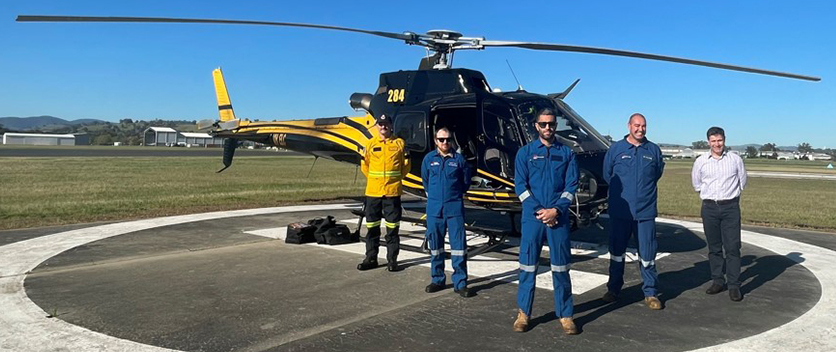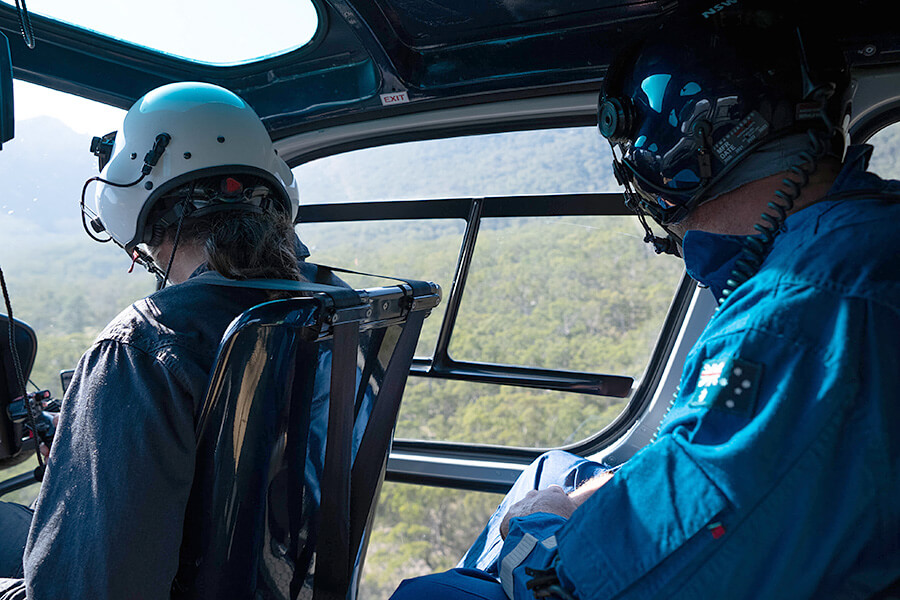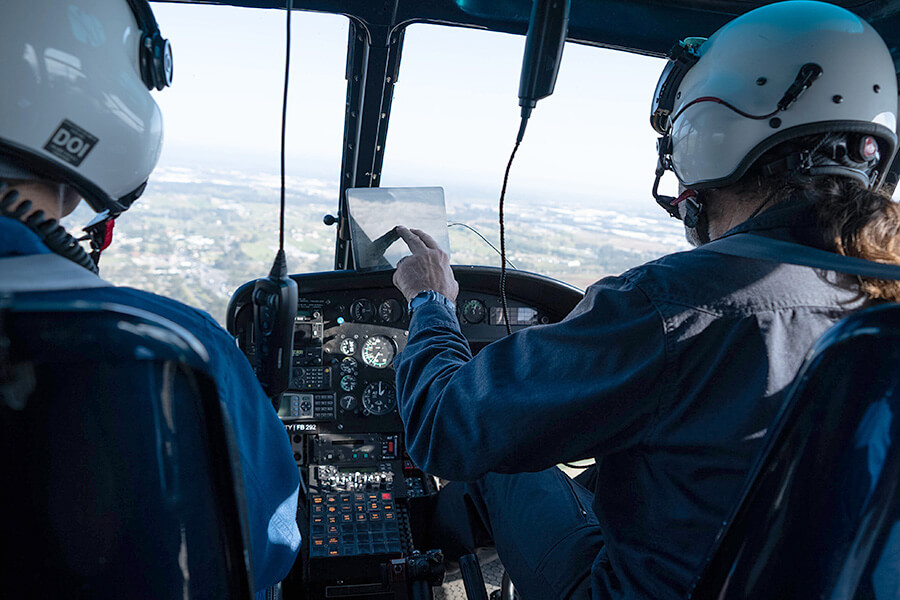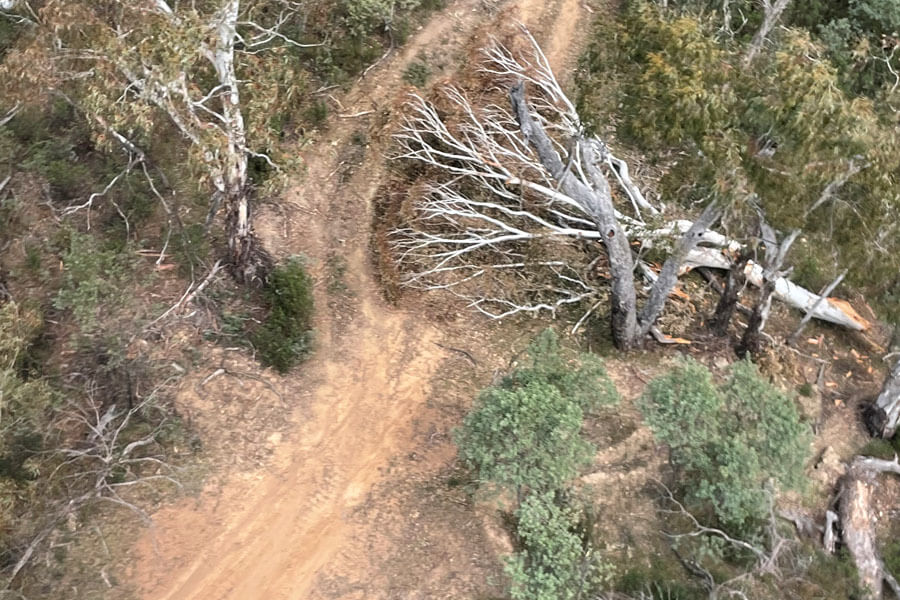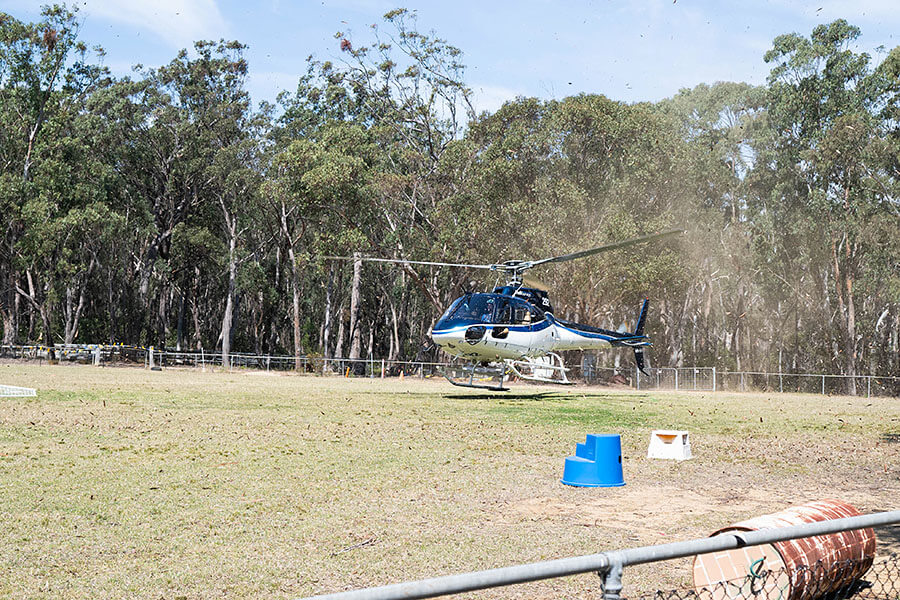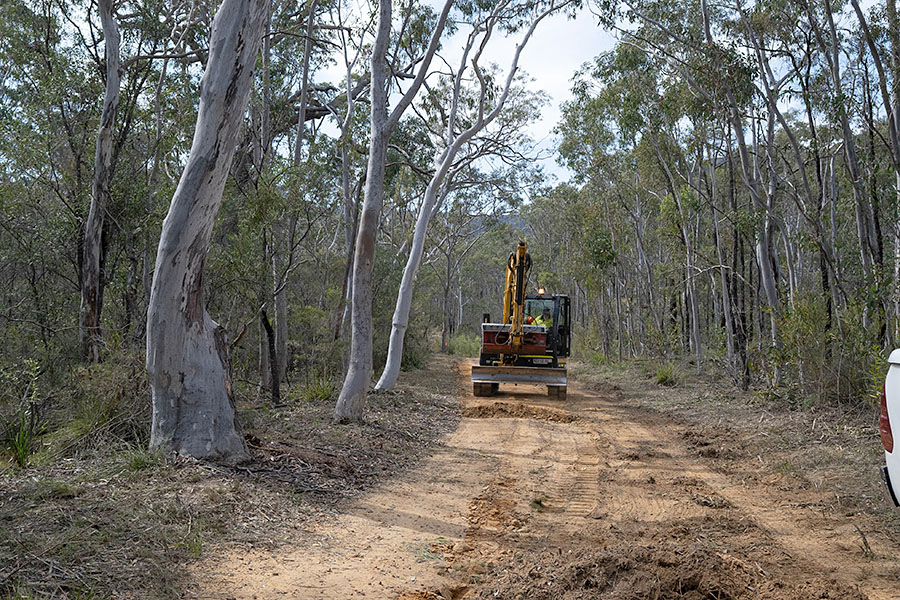Ensuring safety through aerial inspections
Crown Lands has partnered with the Rural Fire Service to conduct helicopter aerial inspections of fire trails ahead of the bushfire season. These inspections allow identification of critical work required to make trails operational prior to summer and are supported by on-the-ground trail maintenance by the Soil Conservation Service.
Statewide aerial inspections
Each year, hundreds of fire trails, covering thousands of kilometres of Crown land, national parks, state forests, and adjoining areas, are inspected by helicopter. These inspections ensure that fire trails are safe and accessible for firefighters.
Aerial inspections are more efficient than traditional 4WD inspections, especially in remote or less accessible areas. They significantly reduce inspection times from months to weeks. The helicopter, equipped with a camera, records areas needing follow-up work, such as fallen trees, erosion, vegetation growth and damaged creek crossings.
Ground maintenance and improvements
Following aerial inspections, condition reports are circulated to bushfire management committees and ground crews remove vegetation, repair erosion, and undertake drainage and soil stability work. They also construct vehicle passing and turning bays, position trail signage, and install gates and bollards to protect fire trails from illegal access and dumping.
Collaborative efforts for fire safety
The Rural Fire Service, Fire and Rescue NSW, National Parks and Wildlife Service, Forestry Corporation and other emergency response services all rely on well-maintained fire trails for emergency vehicle access. Crown Lands also collaborates with other agencies to conduct hazard reduction burns and maintain Asset Protection Zones (APZs) to ensure adequate fire breaks between homes and other buildings in residential areas.
Community involvement
If you have concerns about potential bushfire hazards on adjoining land, contact the Rural Fire Service.
